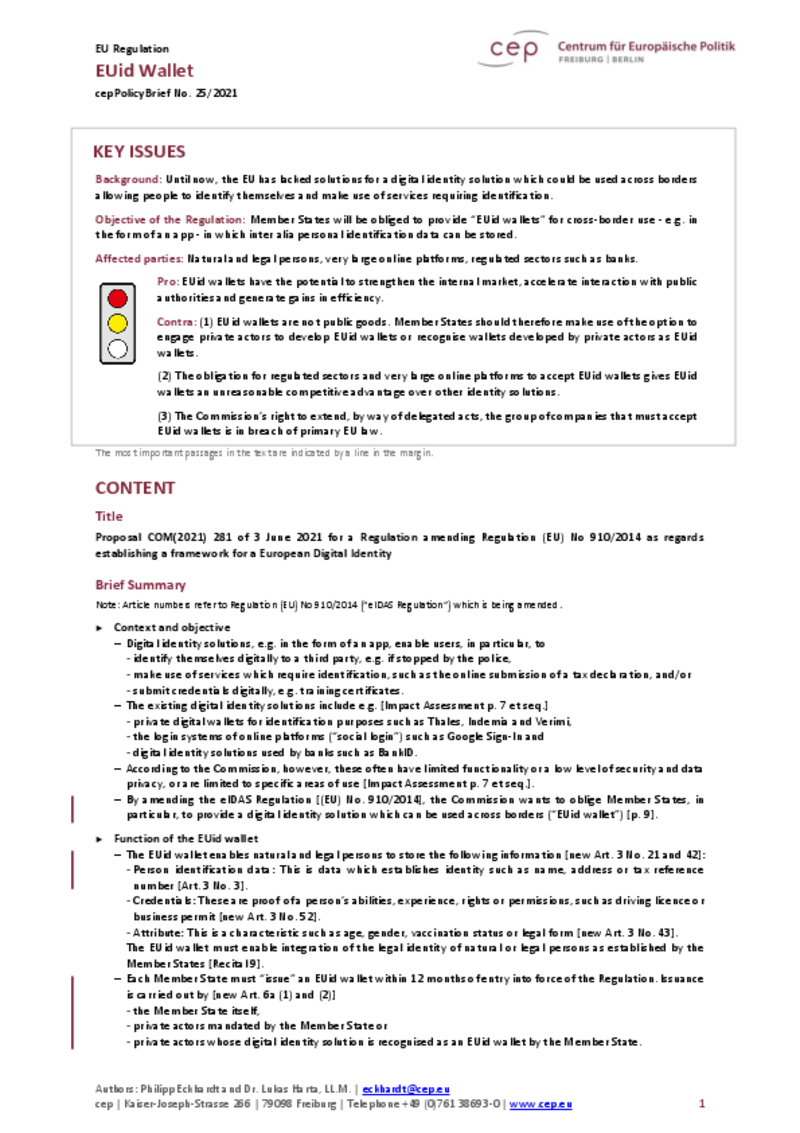
Information Technology
EUid Wallet (cepPolicyBrief COM2021 281)
cepPolicyBrief
Brussels proposes three options. The member states should either develop the apps themselves, commission a company to do so or recognise a solution that has already been developed. The Centre for European Policy (cep) has examined the possible solutions. The Freiburg think tank clearly opposes the first of the three options: "We advocate having the respective apps developed by the private sector. The state is not the better entrepreneur. Privately developed apps enable competition for the best digital wallet," says cep economist Philipp Eckhardt, who wrote the study with cep lawyer Lukas Harta.
After their introduction, digital wallets on smartphones should be accepted not only by authorities and large internet platforms such as Facebook, Amazon, Apple or Google, but also by regulated industries such as banks. The Freiburg experts warn that these companies will be obliged to accept the digital wallets. "Not only for companies like Facebook or Google would this mean a massive interference with their freedom to conduct a business," says Harta. He also considers the Commission's plan to decide on its own to extend the acceptance obligation to other online providers to be legally vulnerable. "On such an important aspect, the legislator must have the last word, i.e. Parliament and Council," emphasises the cep expert.
Most recently, there had been problems in Germany with the introduction of the digital driving licence by the Federal Ministry of Transport. Experts had found security gaps. In addition, there were failures due to the overloading of servers.
Download PDF
| EUid Wallet (cepPolicyBrief COM2021 281) (publ. 10.26.2021) | 215 KB | Download | |
 | |||



